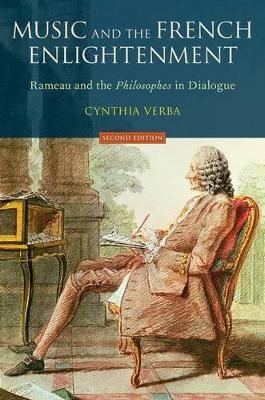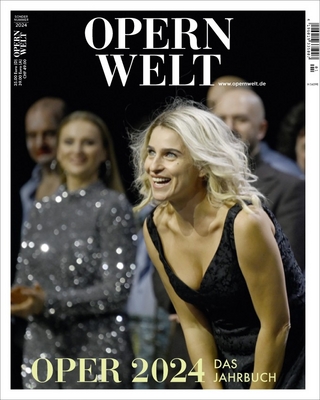
Music and the French Enlightenment
Oxford University Press Inc (Verlag)
978-0-19-938102-9 (ISBN)
The discussion centered upon three different events occurring roughly simultaneously. The first was Rameau's formulation of the principle of the fundamental bass, which explained the structure of chords and their progression. The second was the writing of the Encyclopédie, edited by Diderot and d'Alembert, with articles on music by Rousseau. The third was the "Querelle des Bouffons," over the relative merits of Italian comic opera and French tragic opera. The philosophes, in the typical manner of Enlightenment thinkers, were able to move freely from the broad issues of philosophy and criticism, to the more technical questions of music theory, considering music as both art and science. Their dialogue was one of extraordinary depth and richness and dealt with some of the most fundamental issues of the French Enlightenment.
In the newly revised edition of Music and the French Enlightenment, Cynthia Verba updates this fascinating story with the prolific scholarship that has emerged since the book was first published. Stressing the importance of seeing the philosophes' writings in context of a dynamic dialogue, Verba carefully reconstructs the chain of arguments and rebuttals across which Rousseau, D'Alembert, and Diderot formulated their own evolving positions. A section of key passages in translation presents several texts in English for the first time, recapturing the tenor and tone of the dialogue at hand. In a new epilogue, Verba discusses important trends in new scholarship, tracing how scholars continue to grapple with many of the same fundamental oppositions and competing ideas that were debated by the philosophes in the French Enlightenment.
Cynthia Verba has long devoted her scholarship to the rich musical debates of the French Enlightenment, with many of the issues revolving around the composer-theorist Jean-Philippe Rameau, as both subject and participant in the debates. Her most recent book, Dramatic Expression in Rameau's Tragédie en Musique (CUP, 2013) shifts the emphasis from the Enlightenment debates about music to the music itself, focusing on Rameau's own tragedies.
Prologue
List of Abbreviations
1. Introduction
2. Rameau and Rousseau Launch the Debate
3. Music as Expressive Art: Rameau versus Rousseau on Expressive Means and Content
4. Music as Science: The Contribution of d'Alembert
5. Music as Art and Science: Changing Conceptualizations by Diderot, 1748-1760
6. Music as Art and Science: Changing Conceptualizations by Diderot, 1761-1771
Epilogue
Key Passages in Translation
Chapter 2:
Jean-Jacques Rousseau, from Letter sur la musique française
Jean-Philippe Rameau, from Observations sur notre instinct pour la musique
Chapter 3:
Jean-Philippe Rameau, from Erreurs sur la musique dans l'Encyclopédie
Jean-Jacques Rousseau, from Dictionnaire de musique, "Opéra"
Chapter 4:
Jean le Rond d'Alembert, from Élémens de musique théorique et pratique, "Discours préliminaire"
Chapter 5:
Denis Diderot, from Entretiens sur "Le Fils naturel," Troisième entretien
Denis Diderot, from Leçons de clavecin et principes d'harmonie, par M. Bemetzrieder
Select Bibliography
Index
| Erscheinungsdatum | 15.11.2016 |
|---|---|
| Zusatzinfo | 1 |
| Verlagsort | New York |
| Sprache | englisch |
| Maße | 152 x 231 mm |
| Gewicht | 318 g |
| Themenwelt | Kunst / Musik / Theater ► Musik ► Klassik / Oper / Musical |
| Kunst / Musik / Theater ► Musik ► Musiktheorie / Musiklehre | |
| Kunst / Musik / Theater ► Musik ► Pop / Rock | |
| Geisteswissenschaften ► Philosophie ► Philosophie der Neuzeit | |
| ISBN-10 | 0-19-938102-X / 019938102X |
| ISBN-13 | 978-0-19-938102-9 / 9780199381029 |
| Zustand | Neuware |
| Informationen gemäß Produktsicherheitsverordnung (GPSR) | |
| Haben Sie eine Frage zum Produkt? |
aus dem Bereich


